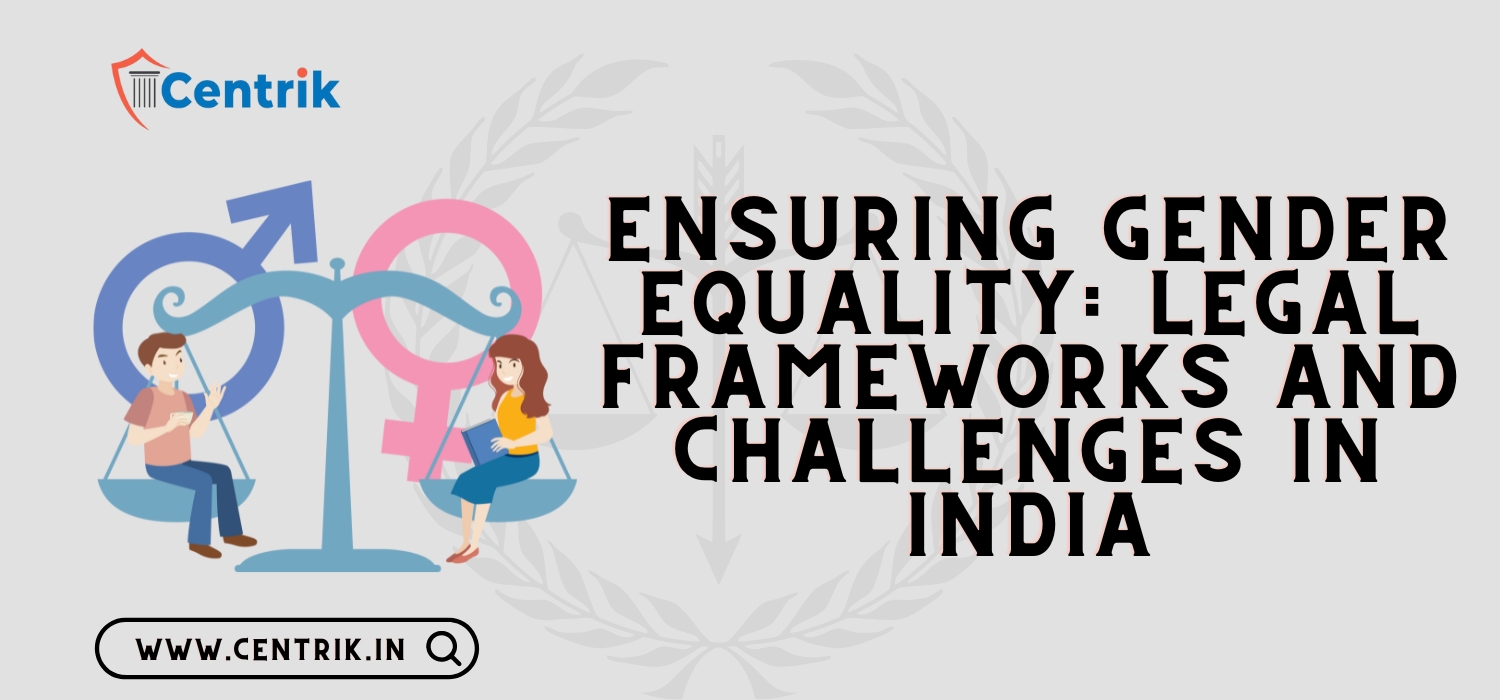
Introduction:
Gender equality is a fundamental human right and a cornerstone of a democratic society. Despite the great strides made in promoting women’s rights in India, gender discrimination continues in many parts of the world. The legal framework plays an important role in promoting gender equality, fighting discrimination and empowering women. This article reviews the legal mechanisms and challenges faced in ensuring gender equality in India.
Constitutional Provisions:
The Constitution of India enshrines the principles of equality, non-discrimination and justice for all citizens. Articles 14, 15 and 16 guarantee equality before the law, prohibit discrimination based on sex and guarantee equal opportunities in public office. Article 39(a) also requires the Government to guarantee equal rights and opportunities between men and women.
India has enacted several laws aimed at protecting and promoting women’s rights and gender equality. The Protection of Women from Domestic Violence Act, 2005, addresses domestic violence and provides for civil remedies and protection orders. The Sexual Harassment of Women at Workplace (Prevention, Prohibition, and Redressal) Act, 2013, mandates employers to create safe working environments and establish mechanisms for addressing complaints of sexual harassment.
Challenges and Implementation Gap:
Despite a strong legal framework, challenges remain in the effective implementation and enforcement of gender equality laws in India. These challenges include social attitudes and stereotypes, inadequate legal protection, underreporting of sexual violence, and inadequate resources for support services and legal aid. In addition, patriarchal norms and cultural practices often undermine women’s rights and perpetuate gender differences.
Landmark Judgments and Legal Reforms:
Over the years, Indian courts have delivered several landmark judgments reaffirming the principles of gender equality and women’s rights. The Vishakha judgment in 1997 laid down guidelines for preventing and redressing sexual harassment in the workplace, leading to the enactment of the Sexual Harassment of Women at Workplace Act. Similarly, the triple talaq verdict in 2017 declared instant divorce practices among Muslim communities unconstitutional, highlighting the importance of gender justice and equality before the law.
Conclusion:
Promoting gender equality requires a multifaceted approach that includes legal reforms, social changes and empowerment programs. India has made significant progress in promoting women’s rights, but challenges remain and efforts are needed to ensure effective implementation and enforcement of gender equality laws. By promoting a culture of respect, equality and inclusion, India can strive to create a society where everyone, regardless of gender, enjoys rights, opportunities and authority under the law.




 join For Updates
join For Updates